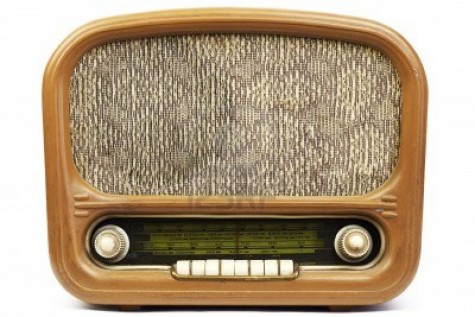Early one evening a couple of weeks ago I was sitting on a bed in a hotel room in Aspen, laptop in lap, when I started hearing voices. I raised my head, listening closely. At first I assumed the voices were coming from the street, but then I saw that the windows were closed. I got up and partially circumnavigated the bed, trying to trace the voices to their source, until I found myself standing before a radio on a nightstand. At this point I recognized one of the voices as belonging to an architect of the Iraq invasion eleven years ago. Back then he had warned of mushroom clouds, and talked about being greeted as liberators, and argued that the war would pay for itself, and promised the discovery of weapons of mass destruction. Now he was criticizing President Obama for wrecking the Middle East. That’s crazy, I thought. I don’t remember turning on the radio.
I’d heard the hotel is haunted. Another guest had told me that she refused a room on the third floor because she’d read on the internet that that’s where the ghost is–or, perhaps, ghosts are. Google “Hotel Jerome,” she told me, and look at the autofills. One of them, she said, will be “Hotel Jerome haunted.” I did, and sure enough, there it was: a story about a boy who, while his family was staying in Room 310 in 1936, drowned in the hotel pool. “Since then,” says Wikipedia, “guests and employees have sometimes encountered his ghost, known as ‘water boy,’ either in that room or nearby hallways.” I wasn’t in Room 310, but I was on the third floor, and “water boy,” apparently, is only the start: “Other supposed hauntings take place on the third floor, to the extent that many employees reportedly prefer not to work up there.”
I knew I would have to be careful in drawing conclusions about how the radio could be playing even though I hadn’t touched it. I also knew I would stick to the facts. I am, after all, an empiricist, and I’ve read enough about confirmation bias–the tendency to interpret evidence in such a way as to support one’s argument, whatever it might be–to know I want to avoid it.
A few years earlier, I had witnessed confirmation bias in action in a quite similar circumstance. I was sitting in a room with several people who, I knew, believed in ghosts. One of them (the people, not the ghosts) bumped against a table, unplugging a digital clock that sat on its surface, and I thought, Here we go.
The clock, blinking, blinking, blinking, read, “12:00,12:00, 12:00,” at least until it read “12:01, 12:01, 12:01.” A few minutes later someone noticed the clock’s behavior, and before long a consensus had formed: It was due to supernatural causes. Um, no, I countered, and I mentioned the table bump that had dislodged the plug. Even so, some people seemed not entirely convinced.
Vowing now not to succumb to the same lapse in logic, I turned off the radio in my hotel room and told myself that there must be a reasonable explanation.
The next evening, however, the voices returned. I had to wait in the hall while the housekeeping staff turned down the bed, but when they left, I went into the bedroom and, sure enough, the radio was playing again. At that moment I recalled that the housekeeping crew had been in the bedroom the previous evening, too, just prior to my noticing that the radio was on.
Well, there’s the answer! I thought. The only reasonable explanation for this puzzling assortment of facts!
The ghost comes at the same time every evening.
* * *


Was this an old, old radio with a single analog on/volume knob as the only way to turn it on or was it the kind that I’ve seen in every hotel room I’ve ever been in?
Because if the second, then I have another hypothesis about how an alarm-clock-radio might turn on at exactly the same time every day….